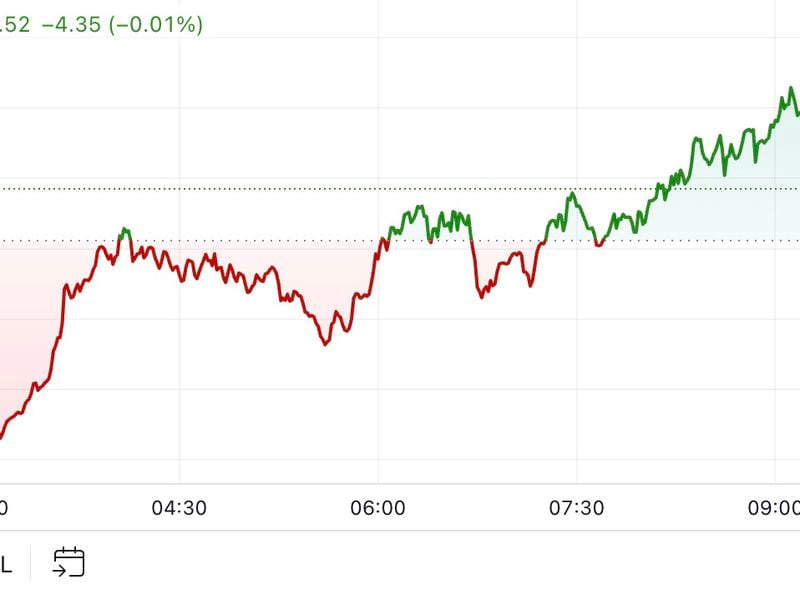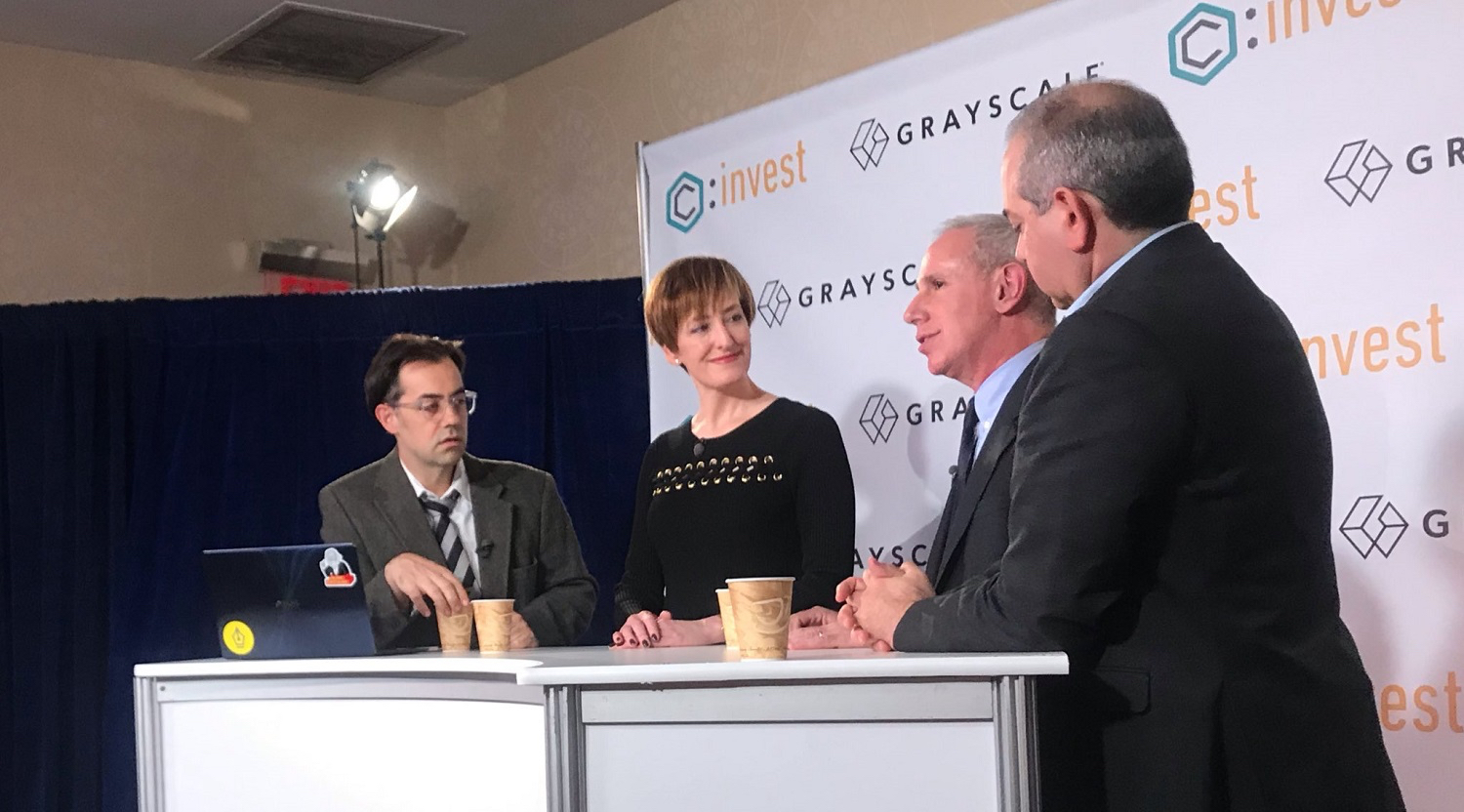A Psychic Visit with Nouriel Roubini: The Mother and Father of All Crypto Skeptics


–––––––––––––––––––––––––––––––––
 Admit it – you already hate that this article exists.
Admit it – you already hate that this article exists.
That itself is no small testament to the man it’s about, Dr. Nouriel Roubini, the outspoken economist and professor whose tweets, interviews and public testimonies this year have seemed to treat the entire cryptocurrency movement with all the tenderness of an insubordinate prison inmate.
In the process, Roubini has arguably become the embodiment of an incumbent intellectual class that sees cryptocurrency as responsible for not just a massive price bubble but a flurry of frauds and scams that have bilked consumers out of billions with the promise that their token of choice could eradicate everything from poverty to disease.
“The mother and father of all bubbles gone bust?” That’s still how Roubini describes what others have called the next internet, and if there’s any hope he’ll soften his stance when the cameras aren’t rolling, Roubini quickly snuffs it out.
“The words are not a provocation,” he reaffirms.
In person as in video, he draws almost no distinction between the technology and the admittedly opaque industry that has sprung up around it, even going so far as to dismiss bitcoin’s answer to the double-spend problem, its core technical innovation, as having earned it a spot in a “future museum on clever economics of the past” – and little else.
Over two days of interviews, this is the closest he’ll get to a compliment.
Still, if there’s a moral to our sprawling conversations, it’s this: while innovators in the crypto community are quick to demand that others see their vision (and overlook their faults), Roubini is living proof they aren’t always so empathetic as to extend this courtesy to others.
Indeed, what’s surprising in Roubini’s case is how unilaterally he’s inspired hostility. He is, after all, no recent apparition in the world of economics, where he’s hovered between rock star and also-ran status in the decade since his 2006 prediction of a global financial crisis. Further, he shares many of the same critiques of the financial system as cryptocurrency enthusiasts.
Have you ever stopped to read any of Roubini’s articles? Have you actually read his 37-page testimony before the U.S. Senate? (He has a suspicion you haven’t.)
But if Roubini is to blame for his gleeful hyperbole, admittedly casual grasp of technology and a command of English that betrays his long journey to the U.S., then crypto enthusiasts are guilty of not making an effort to read past his soundbites and understand his arguments.
From his office at New York University, Roubini is keen to first direct the dialogue to the scars he’s accrued in the resulting war of words. Denial-of-service attacks, death threats, spam emails – if Roubini sees the worst in cryptocurrencies, he’s seen also the worst in their supporters.
With a leg on a desk, he breaks apart a Kind bar as he discusses his response.
“When people try to bite you… Not just barking but biting dogs… An eye for an eye and a tooth for a tooth…” he says, later pursing his lips to punctuate the lingering sentence.
Behind a desk, there he is, finally, the weary professor wondering what the hell happened in class while he was in the hall.
First, a few grievances
Sorting the good from the bad in Roubini’s arguments, however, is a tall order.
If Roubini is at best a passionate defender of economics and the canon of learning it comprises, he often does himself a disservice in conversation.
A fair amount of that appears to stem from two factors. One, Roubini’s convictions are actually fairly simple, and two, he often buries his point under responses to tangential topics.

Roubini looks at his phone in his offices at New York University.
Asked about the specifics of his own research, Roubini is quick to give an answer, citing a study he’s read on the high rate of ICO failures – “in any legitimate industry, you don’t get 81 percent of scams in the first place,” he says – that is, before he starts decrying crypto’s association with alt-right ideologies and anti-Semitic conspiracy theories.
Asked if bitcoin can be viewed separately from other cryptocurrencies, with less mature code or markets, he gives a strong response – “bitcoin is based on blockchain and cryptography and authentication based on proof of work” – before turning the subject to how it’s “AI, machine learning and a combination of big data and internet of things” that will revolutionize finance.
“Ninety-nine percent of anything crypto and blockchain is vapourware,” he continues.
In Roubini’s mind, there’s a clear connection between all these points. However, it’s hard not to feel like Roubini is sometimes avoiding your question or simply using it as a vehicle for whatever point or grievance he was going to air in the first place.
For example, it’s the accusation that he’s in the pocket of banks that seems to get the most airtime and ire, despite the fact this isn’t brought up in any questioning.
“That’s nonsense. I’ve written about the financial crisis and the distortions that lead to the financial crisis,” he says, adding of his detractors: “They don’t know anything about money so they want to reinvent everything, decentralize everything.”
My attempts to halt the flow from topic to topic seem to do little to break Roubini’s momentum, and next, we’re on to how he’s been unfairly categorized as anti-innovation.
“People tell you are a dinosaur, they throw you this nonsense. If you believe in innovation, you have to believe in blockchain or crypto. It’s become a fad,” he says. “There are thousands of fintech companies, they’re not going to give you a shitcoin.”
If you’re about to tune out now, re-read the sentences above. In short, Roubini believes crypto isn’t working because it isn’t delivering results, that crypto entrepreneurs demonstrate a poor grasp of economics and that they underestimate the impact of other technologies.
So far, nothing all that objectionable. Later on, he offers a more subdued take, one that is unusual as it could be characterized as a sober and salient distillation of his views.
“I try to give you the skepticism of an economist. I may not understand anything deep about technology,” he says. “My view is that models of digital and mobile payment systems are working, and they all have to do with fintech.”
A detour to Death Valley
Still, if Roubini can be lauded for strong convictions, deeply buried, it’s hard to tell how exactly he’s arrived at some of his conclusions. Is he someone who studies deeply or goes with his gut?
It’s a question that has been asked about Roubini before, most notably in his New York Times profile entitled simply “Dr. Doom.” “When the economist Anirvan Banerji delivered his response to Roubini’s talk, he noted that Roubini’s predictions did not make use of mathematical models and dismissed his hunches as those of a career naysayer,” an excerpt reads.
Indeed, in our conversation, Roubini seems to see-saw between implying his opinion is driven by research, and at other times, indicating it’s simply the result of spotting human nature.
In fact, the latter appears to be a common denominator in the predictions that have defined his career to date – his sentiment on the U.S. housing bubble and the crypto crash were both inspired, he says, by moments in which he was able to recognize realities beyond numbers.
“I was in Basel for Art Basel [in December 2017]. Thousands of people go there because it‘s big parties and they don’t know anything about art, and everybody was telling me, ‘Should I buy bitcoin?’” he recalls. “Price action every day has nothing to do with fundamentals. Even strangers come up to you and say, ‘Ah Roubini, should I buy bitcoin?’”
“It was the same light bulb that I drove to Vegas and Death Valley, and I saw thousands of empty homes, people brainless. FOMO is the driver of every bubble,” he continues.
Alone, the blurry lines between Roubini the researcher and Roubini the soothsayer might not be much for conversation – he at one point even makes a joke about economists and weathermen – but they’re more problematic when he applies the same logic to his opinions on technology.
On some subjects, Roubini even ends up sounding like cryptocurrency supporters, using similar language and assurances to back his statements.

Yes, you can really own these cards on the blockchain.
Take for instance his insistence that technology should be easy to intuit. “I’m not a technology guy, but even I understand the logic of what technology is about… what’s enough for a layperson who wants to understand it,” he says.
The statement seems to conflate two realities that are certainly true of all technologies – they can be extremely simple to use, yet also contain almost untold intricacies that end up being entirely shielded from the user. Still, it’s an emphasis he makes repeatedly.
“I’ve read dozens of papers… about Casper and sharding … technology is complicated, but an intelligent person should be able to read one thing… it could be astrophysics, popular science … so that a reader of the Wall Street Journal could make sense of it,” he says.
Here, he draws most often on experiences with the internet, in which he describes himself as an early adopter of the technology. According to Roubini, he even coded in basic HTML, using Microsoft Frontpage, in the early 1990s, work that resulted in a simple blog that aggregated links on past financial collapses and that helped him build an early consulting business.
(Unfortunately, the blog, originally hosted by NYU, no longer exists. Roubini says the content was transferred to a website for the Roubini Global Economics, a later consulting venture, and that the blog posts and any records of it have since disappeared.)
“I wanted to know why things were going bust,” he recalls. “It was every blog, papers on Indonesia, Malaysia, it was a big set of pages and a directory. I had hundreds of thousands of people using this piece of junk and each page was a country and subtopic.”
But if Roubini benefitted from a platform of information delivery that lowered costs such that his writings could be accessible the world over (or at least to those who owned expensive, boxy computers and dial-up internet connections), he doesn’t draw similarities to cryptocurrency.
“It was sub-pages and I could do hyperlinks. But it was all done by myself. Everyone was using the internet because it was amazingly useful. I went through the internet and I know when there’s a technology, you know certain things that change completely,” he says.
Now, remove the nouns here and put in your favorite crypto words.
Finally, the points
Soon after, Roubini and I hail a cab and take our argument out on the streets of New York. The sky is still a gun-metal gray, but it’s brightening, and so, too, are my prospects for more participatory conversation.
Me: “Can we agree it’s new?”
Roubini: “Yes, but I don’t think that it’s a new idea that can work.”
Me: “What about new markets that are digital where frictions on exchange are high?”
Roubini: “Why do people use the cloud of Amazon or Microsoft? Because there is a bundle of services and these things have some price. So, competing with them will be impossible.”
Me: “But don’t we want to democratize finance? To allow more people into more opportunities.”
Roubini: “People say in this space… the paternalistic government doesn’t let me invest. There is a good reason it cannot be sold to non-accredited investors.”
And on and on, until finally, I think I start to see the points.

Roubini hails a cab in New York.
Stripped of all the hyperbole and internet chest-banging, Roubini can be seen as having three core critiques when it comes to cryptocurrencies.
Whereas cryptocurrency supporters see the financial crisis as an issue that can be eradicated by clever code and by removing power from incumbent players, Roubini views central banks and incumbents as necessary inventions that have benefited market stability.
Second, he doesn’t believe tokenized services can be used in areas where they would compete against real-world goods and services, which could simply adjust their prices. (“Dentacoin is a failure. Say, you have most dentists, even 10 to 30 percent, using dentacoin… they coordinate and increase the price of the services you need the token for … they’re creating a cartel.”)
Third, and perhaps most importantly, he believes that tokenizing every good or service to make it tradable on a blockchain would reintroduce problems economists believe they have already solved centuries ago through the creation of money.
“I asked myself whether bitcoin and other cryptocurrencies and assets could satisfy the definition of money or a currency,” he says in a rare reserved moment. “There are standard definitions. A key one is a unit of account. Otherwise you end up into barter.”
Me: “Don’t you think computers could programmatically barter cryptocurrencies?”
Roubini sighs and looks at me like I’m someone who’s going to fail Economics 101.
We’ll always have Dallas
The back and forth is occasionally exhausting, with neither of us quite hitting a middle ground. Though, credit where credit is due, Roubini doesn’t seem to lose his energy.
Just when it seems all hope is lost, though, a small miracle appears on the street in the form of a fortune teller named Dallas. Sitting near a besparkled sign, she’s offering readings for $10.

Sign for fortune readings on streets of New York.
Say what you will about Roubini, he’s not without a sense of humor, or even a playful willingness to hear out others. Soon, he’s bought into my idea that we should ask her questions about the future of money and have her settle our arguments.
Roubini (to Dallas): “The question is, he believes that there is a great future for bitcoin and cryptocurrencies, I believe there is no future for bitcoin and cryptocurrencies, so we need someone like you who can read in the future, and tell us.”
She looks up at us, startled, but she’s buying it.
Dallas: “That’s that thing that you invest in, like you buy it for a certain price … it goes up.”
Roubini: “He thinks it’s the future of money and it’s going to change everything.”
Dallas: “I don’t think it is.”
Pete: “Is this your psychic opinion?”
Dallas: “It’s my psychic opinion.”
Pete: “So … it’s not going to be useful for anything.”
Dallas: “Well, I had people that got involved in it and it didn’t go so good… It’s really difficult… really confusing.”
We thank her, and to my surprise, Roubini reaches into his wallet and actually pays her $10.
Good for a few laughs, but not worthwhile, I think as we walk back to the office. Still, Roubini seems to linger on the conversation, and he seems impressed enough for me to believe he thinks the conversation was worth the money.
As we walk away, he’s smiling, considering.
He adds:
“You know, a lot of psychics… they’re just good psychologists.”
Now, think about what that says about us.
––––––––––––––––––––––––
Art by HyperDragons / MixMarvel (@mixhyperdragons)










